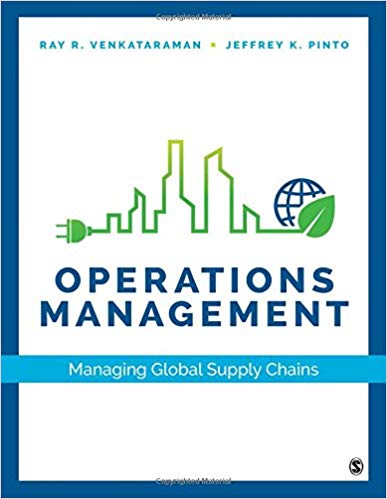Question
McDonald's has never been content to sit back and wait for consumer tastes to change around it. Rather, the company continues to do what it
When fast food seemed synonymous with "greasy," "overcooked," and "fried," McDonald's changed things up with their healthy options menu, including wraps, grilled options instead of the production line fried foods, fresh fruit, and yogurt-based smoothies. These menu changes were doubly effective: They allowed McDonald's to compete directly with other stores that promoted healthy alternatives, like Subway, and they took some of the rhetorical wind out of the sails of their harshest critics, including the San Francisco Board of Supervisors, who, in 2011, banned the inclusion of a toy in McDonald's Happy Meals, claiming that the "pester power" of children could induce parents to buy these unhealthy lunch choices. McDonald's response was twofold: Offer healthy options like milk and apple slices in Happy Meals, and instead of eliminating the toys, McDonald's charged 10 cents for the addition of a toy, with the proceeds benefiting the Ronald McDonald House.
McDonald's continues to set the pace in the fast-food industry. When competitors offer their own healthy menus, they are often seen as simply copying and therefore acknowledging the prescience of McDonald's in staying ahead of the consumer trend curve. The fast-food industry has been the butt of jokes and held up to general disapproval for a number of years due to charges that it offers increasingly poor choices to patrons who don't know any better. Unlike some competitors who seem content to keep their menus unchanged and their products unhealthy, McDonald's has been doing what is necessary to change who they are, reinvent themselves, and keep their fingers firmly on the pulse of their international customer base.
Recently, McDonald's has been focusing on investing in technology to drive sales growth, especially in the area of digital sales. The company has been installing digital self-order kiosks in their restaurants and expanding food delivery. McDonald's has also been ramping up its tech-focused investments. In 2019 alone, the company acquired Apprente, a Silicon Valley company using artificial intelligence to automate drive-thru orders, and Dynamic Yield, a company that specializes in decision logic technology. CEO Chris Kempczinski emphasizes the importance of technology shaping the company's strategy in 2020 and beyond: "Digital is transforming global retail, and it will transform McDonald's.
In your opinion, what is the future of fast food around the world? Are consumer taste changes and concerns about healthy eating likely to diminish the demand for fast food? How would you evaluate the reinvention strategy used by McDonald's? Do the changes represent a fundamental shift in the company's competitive model, or are they cosmetic? If McDonald's hired you to advise it with regard to future trends and the changes it should consider, what would you suggest? Defend your suggestions. Research the current state of McDonald's. What are the areas in which the company plans to reinvent itself in the coming years, particularly in light of the appointment of its new CEO, Chris Kempczinski (November 2019), and the COVID-19 pandemic?
Step by Step Solution
There are 3 Steps involved in it
Step: 1
The future of fast food around the world is likely to see a continued evolution towards healthier options and greater integration of technology into the ordering and delivery processes While there wil...
Get Instant Access to Expert-Tailored Solutions
See step-by-step solutions with expert insights and AI powered tools for academic success
Step: 2

Step: 3

Ace Your Homework with AI
Get the answers you need in no time with our AI-driven, step-by-step assistance
Get Started


